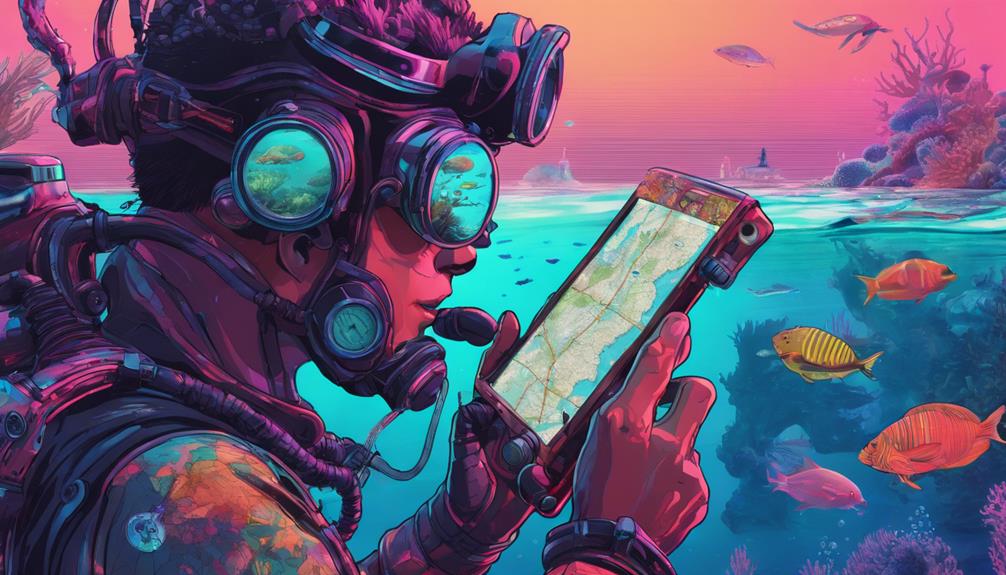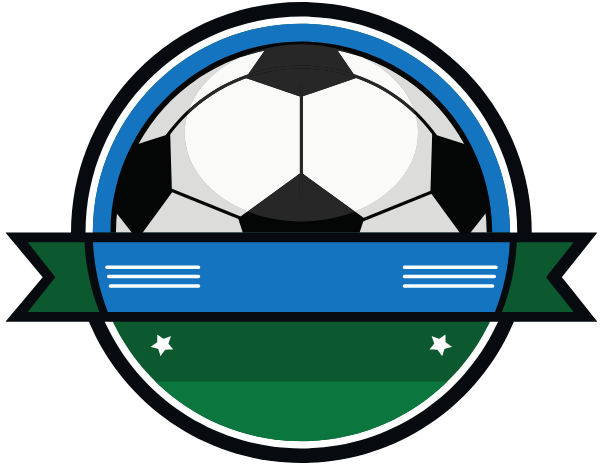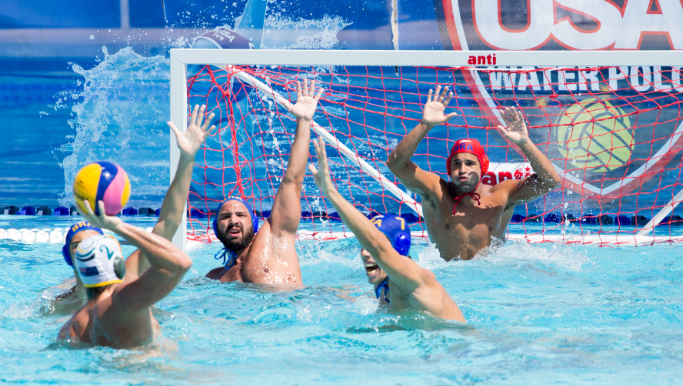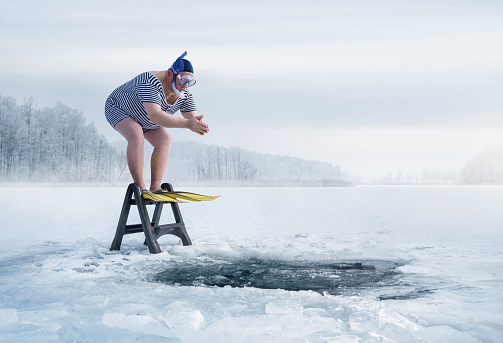General Rules of Underwater Orienteering
Did you know that only 20% of underwater orienteering accidents are caused by equipment failure? Keeping yourself safe underwater involves a combination of knowledge, skills, and adherence to general rules.
Understanding safety precautions, essential equipment, navigation techniques, and communication within your team are vital aspects of this sport.
As you delve into the depths of underwater orienteering, mastering these rules will not only enhance your experience but also ensure a successful and enjoyable dive.
Safety Precautions
What're the essential safety precautions to consider before engaging in underwater orienteering?
Before embarking on your underwater orienteering adventure, it's crucial to prioritize safety. One of the fundamental safety measures is to always use the buddy system. This means never diving alone but with a partner who can provide assistance in case of emergencies. Establish clear emergency signals with your buddy beforehand to ensure effective communication underwater.
When selecting a dive site for orienteering, carefully assess the weather conditions. Check for any potential changes in weather patterns that could affect your dive, such as strong currents or storms. It's essential to choose a dive site suitable for your skill level and experience to minimize risks.
Always conduct a thorough equipment check before diving and ensure everything is in proper working condition. Familiarize yourself with the layout of the dive site and plan your route accordingly. Stay aware of your surroundings at all times and be prepared to respond quickly to any unexpected situations.
Equipment Essentials
Prioritize safety by ensuring you have the essential equipment for underwater orienteering. Gear maintenance is crucial to guarantee that your equipment functions properly underwater. Before each dive, check your gear thoroughly, paying close attention to your mask, fins, snorkel, dive computer, and buoyancy control device. Ensure that all equipment is in good condition and that there are no leaks or malfunctions that could jeopardize your safety.
Emergency procedures must be clearly understood and practiced. Familiarize yourself with the emergency signals and protocols for underwater communication. In case of an emergency, knowing how to signal distress and communicate effectively with your dive buddy can make all the difference.
Proper equipment setup is key to a successful underwater orienteering experience. Make sure your gear is fitted correctly and comfortable for long dives. Adjust your buoyancy control device to achieve neutral buoyancy, allowing you to move effortlessly underwater.
Dive signals are essential for communicating with your dive buddy and team. Learn and practice common dive signals to convey messages effectively while submerged. Understanding and responding to signals promptly can prevent misunderstandings and ensure a safe diving experience. Remember, clear communication is vital for a successful underwater orienteering adventure.
Navigation Techniques

To effectively navigate underwater during orienteering, mastering precise techniques for orienting and maintaining direction is paramount. Underwater mapping and route visualization are essential skills for successful navigation. Understanding the terrain and creating mental maps will help you anticipate obstacles and plan efficient routes. By visualizing the underwater environment, you can navigate with confidence and accuracy.
Compass calibration is crucial for accurate navigation. Before diving, ensure your compass is properly calibrated to account for any magnetic interference. Regularly check your compass during the dive to stay on course and make necessary adjustments. Familiarize yourself with landmark recognition to aid navigation. Identifying distinct features underwater can serve as reference points for orientation and help you stay on track.
Practice navigation techniques in different underwater environments to enhance your skills. Experiment with various methods of underwater mapping to find what works best for you. Refine your route visualization abilities by mentally rehearsing different scenarios and adapting to changing conditions. By honing your compass calibration and landmark recognition skills, you'll navigate underwater confidently and efficiently. Remember, precise navigation techniques are the key to a successful underwater orienteering experience.
Team Communication
Effective team communication is crucial for success in underwater orienteering expeditions. Clear and efficient communication is even more important in the underwater realm due to limited visibility and challenging environments. To enhance the experience, consider the following tips:
- Establish Clear Signals: Agree upon signals for directions, emergencies, and essential messages to avoid confusion and ensure quick responses.
- Assign Roles: Designate specific roles for each team member based on their strengths to prevent overlap and ensure efficient task handling.
- Practice Active Listening: Encourage active listening by paying attention to verbal cues, hand signals, and body language to better understand each other's needs and intentions.
- Debrief Regularly: Conduct debriefing sessions after each orienteering session to discuss successes and areas for improvement, fostering a culture of continuous learning within the team.
Time Management

Efficiently managing your time during underwater orienteering expeditions is paramount for ensuring successful navigation and achieving expedition objectives. Prioritizing tasks is essential in optimizing your time underwater. Before starting your dive, set clear and achievable goals for each segment of the expedition. By setting goals, you provide yourself with a roadmap to follow, helping you stay on track and make the most of your time underwater.
When underwater, time becomes a precious resource. Prioritize tasks based on their importance and urgency. For example, if you encounter a challenging navigation point, focus your efforts on solving it efficiently to avoid wasting valuable time. Setting goals before submerging can help you allocate the necessary time for each task effectively.
Moreover, maintaining a steady pace throughout the orienteering expedition is crucial. By setting a rhythm and sticking to it, you can ensure that you cover the planned course within the allocated time frame. Regularly check your progress against your predefined goals to make timely adjustments if needed.
Environmental Awareness
Maintain constant vigilance and attentiveness to the surrounding aquatic environment while engaging in underwater orienteering expeditions. Being aware of the underwater world is crucial not only for your safety but also for the preservation of marine conservation and biodiversity. Here are four essential practices to enhance your environmental awareness during underwater orienteering:
- Respect Marine Life: Treat all marine life with care and respect. Avoid touching or disturbing corals, plants, and animals to prevent damage to their fragile ecosystems. Remember, you're a visitor in their home.
- Avoid Pollution: Be mindful of your equipment and surroundings to prevent pollution. Properly dispose of any trash or waste and avoid using chemicals that can harm marine life. Keep the underwater environment clean for future generations.
- Observe Closely: Take the time to observe the marine life around you. Appreciate the beauty of biodiversity and take note of any species you encounter. Your observations can contribute to scientific research and conservation efforts.
- Educate Yourself: Stay informed about marine conservation efforts and biodiversity preservation initiatives. Learn about the importance of protecting our oceans and how you can contribute to these efforts through responsible diving practices.
Dive Planning

When planning your dive, carefully consider factors such as depth, time, and equipment to ensure a safe and successful underwater expedition. Dive logistics play a crucial role in ensuring a smooth dive. This includes planning the entry and exit points, transportation of gear, and communication between team members. Proper gear maintenance is essential to prevent malfunctions underwater. Before each dive, check your equipment thoroughly to avoid any potential issues.
| Factors | Considerations | Importance |
|---|---|---|
| Depth | Plan your maximum depth based on experience | Prevents decompression |
| Time | Calculate bottom time and ascent time | Avoids decompression |
| Equipment | Inspect gear, ensure proper functioning | Prevents equipment failure |
Underwater mapping is another critical aspect of dive planning. Familiarize yourself with the dive site's layout to navigate effectively underwater. Emergency procedures should also be thoroughly understood and practiced. Ensure you know how to handle emergency situations such as equipment failure, loss of visibility, or running out of air. By preparing for these scenarios in advance, you can react quickly and effectively in case of an emergency.
Emergency Protocols
In the event of an emergency during an underwater dive, immediate action is crucial to ensure safety and mitigate risks effectively. When faced with a critical situation underwater, following established emergency protocols can make a significant difference in the outcome.
Here are some key steps to remember:
- Emergency Signals: Underwater emergencies often require swift communication to alert your dive buddy or the dive team. Familiarize yourself with common emergency signals such as the 'out-of-air' signal or the 'help me' signal. Clear and concise communication can expedite rescue procedures.
- Maintain Calmness: Panic is a diver's worst enemy during an emergency. Stay calm, assess the situation, and act methodically. Panicking can lead to poor decision-making and exacerbate the emergency. Keep a clear mind to follow rescue procedures effectively.
- Buddy System: The importance of the buddy system is amplified in emergencies. Your dive buddy is your first line of defense in times of crisis. Practice buddy assistance techniques regularly to ensure both you and your buddy are prepared to assist each other in need.
- Rescue Procedures: Understand and practice basic rescue procedures before every dive. Knowing how to assist a distressed diver, perform rescue breaths, or execute a controlled emergency swimming ascent can be lifesaving skills when facing an underwater emergency.
Skill Development

Developing proficient underwater navigation skills is essential for divers to safely explore and navigate the depths with precision and confidence. Technique refinement plays a crucial role in enhancing these skills. Through effective training strategies, divers can improve their ability to navigate underwater environments accurately and efficiently.
To refine your techniques and enhance your underwater orienteering skills, consider incorporating the following training strategies:
| Training Strategy | Description |
|---|---|
| Visualization Techniques | Utilize mental imagery to plan routes and visualize underwater terrain. |
| Mock Navigation Exercises | Simulate underwater orienteering scenarios to practice navigation skills. |
| Buoyancy Control Drills | Enhance your ability to maintain proper buoyancy while navigating underwater. |
| Compass Navigation Practice | Develop proficiency in using a compass for precise underwater navigation. |
Competition Etiquette
To excel in underwater orienteering competitions, it's imperative to adhere strictly to the established etiquette guidelines. In the competitive realm of underwater orienteering, maintaining decorum and respect is paramount for a smooth and enjoyable experience for all participants.
Here are some essential etiquette guidelines to follow:
- Sportsmanship: Always display good sportsmanship by respecting your fellow competitors. Avoid any behavior that may be perceived as unsportsmanlike conduct, such as taunting or gloating.
- Rule Enforcement: Adhere to the rules of the competition without exception. Fair play is crucial in underwater orienteering, and any violations of the rules can lead to disqualification and tarnish the spirit of the sport.
- Spectator Behavior: Spectators play a significant role in the competition atmosphere. As a competitor, be mindful of the spectators and their viewing experience. Avoid disruptive behavior and maintain focus on the competition.
- Awards Ceremony: Show respect for your fellow competitors during the awards ceremony. Congratulate the winners and support all participants, regardless of the outcome. The awards ceremony is a time to celebrate everyone's efforts and achievements in the competition.
Post-Dive Reflection

Engage in a systematic analysis of your performance post-dive to identify areas for improvement and enhance your underwater orienteering skills. Self-improvement is crucial in developing your abilities in underwater orienteering. After each dive, take the time to reflect on your performance. Consider factors such as your navigation accuracy, time management, and decision-making process. Goal setting plays a key role in post-dive reflection. Set specific, measurable goals based on your observations during the dive. Whether it's improving your compass navigation skills or reducing the time taken to complete a course, setting clear goals will help focus your efforts on areas that need enhancement.
During your post-dive reflection, analyze what went well and what could have been done better. Identify any recurring mistakes or patterns in your performance. By pinpointing these areas, you can tailor your training to address them effectively. Additionally, seek feedback from peers or instructors to gain different perspectives on your performance. Constructive criticism can provide valuable insights for self-improvement.
Post-dive reflection isn't just about critiquing your performance but also celebrating your achievements. Acknowledge the progress you have made and use it as motivation to continue pushing yourself. Remember, each dive is an opportunity to learn and grow. Utilize post-dive reflection as a tool for continuous improvement in your underwater orienteering journey.
Frequently Asked Questions
Can Underwater Orienteering Be Done in Any Body of Water, or Are There Specific Types of Locations That Are Best Suited for This Activity?
You can do underwater orienteering in various bodies of water, but ideal locations offer clear visibility and safety. Necessary equipment includes a compass, dive gear, and underwater map. Beginners should start in calm, shallow waters.
Are There Any Specific Physical Fitness Requirements or Limitations for Participating in Underwater Orienteering?
To participate in underwater orienteering, you should meet certain physical fitness requirements. For example, strong swimming skills, cardiovascular endurance, and muscular strength are essential. Health limitations such as heart conditions or respiratory issues may restrict participation.
How Do You Handle Underwater Obstacles or Unexpected Challenges While Navigating During a Competition?
When handling underwater obstacles or unexpected challenges while navigating in a competition, you must rely on problem-solving strategies. Stay calm, assess the situation, adjust your course if needed, and use your skills to overcome any difficulties that may arise.
Are There Any Special Considerations for Underwater Orienteering in Different Seasons or Weather Conditions?
In underwater orienteering, seasonal variations and weather conditions impact visibility and currents. Consider equipment like compasses and dive lights. Prioritize safety precautions for changing environments. Stay aware and adapt to ensure a successful navigation experience.
What Are Some Common Mistakes or Pitfalls to Avoid for Beginners Participating in Underwater Orienteering?
When you dive into the underwater orienteering world, avoid the murky waters of common mistakes. Equip yourself like a seasoned pro, learn beginner tips, master navigation techniques. Proper equipment and focus guide you.






